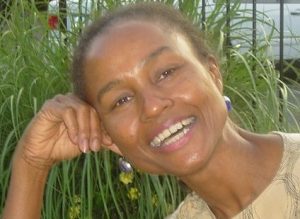High on Positive Energy, Member Maggie Davenport Discusses the Importance of HOPE (Especially If You’ve Let Your New Years Resolutions Slip)
By Maggie Davenport for the NABBW

Maggie Davenport
Winter. A time of natural rest and retreat, of wrapping ourselves in fluffy blankets and settling down, reflecting (or not!).
Meanwhile, in perfect sync with nature, our furry and winged friends are nesting, mating, and traveling to warmer climates – making ready for a flurry of activity in the spring.
Resolutions
With January in the rear view mirror, and many of us still feeling stuck in the doldrums after coming off of the winter holiday season, lots of us are still a bit out of sync with our usual routines.
But despite this disorientation, millions of people around the globe are busy making and keeping resolutions and plotting toward a better self – in the dead of winter – an unnatural time for planning to eat less, be more active and engage in social activities for most of us.
Yet according to a national representative sample conducted by the Economist, one in four Americans say they do make January resolutions. While the number of resolutioners gets lower with age, we baby boomers are still chiming in at 60.91%. The big three are still healthier living, personal improvement and losing weight.
Doing The Work
No matter what the goal, statistics also tell us that less than 8% of people who make resolutions keep them and do not achieve their goals. One explanation for this is the CLIFF theory – something I happened upon several years ago.
 Here’s the breakdown:
Here’s the breakdown:
- Can’t find the time
- Lacking a game plan to keep going
- Ignoring your commitment
- Frustrated with early results
- Forgetting what you started
Through the years, and lots of CLIFFs, I have navigated many an uncertain start to making changes, regardless of the season.
Even when I used the very helpful and practical SMART model, I often came up short. (SMART being an acronym for Specific, Measurable, Assignable, Realistic, Time-Limited.)
With each new effort, I reminded myself that in addition to following this model, I also needed to find a way to make the changes enjoyable – especially if it involved a new diet or activity routine. But I’m an old social worker – so trying to more fully understand why behaviors happen is important. It puts things in perspective and helps me to understand and normalize my actions.
Stages of Change
So awhile back, I pulled out one of my dusty theory books and read the Stages of Change with new eyes. What a relief! This model was designed in the ‘70s to help understand why some smokers were able to quit and others were not.
Essentially, change happens in cycles, or stages. A great sense of relief came when I read that these stages often overlap. This was huge in helping to understand all the hesitations, starting and restarting I’d experienced.
I was further affirmed by knowing that change is not a straightforward process and that there will most likely be several attempts; the key is that each iteration brings us closer to achieving our goals. This perspective has been an absolute boon when trying to figure out where I’m stuck:
- Precontemplation – People do not intend to take action in the foreseeable future (within the next 6 months).
- Contemplation – People are intending to start healthy behavior in the foreseeable future (within the next 6 months) and recognize that their behavior may be problematic.
- Preparation (Determination) – People are ready to take action within the next 30 days, making small steps.
- Action – People have recently changed their behavior (within 6 months) and intend to keep moving forward with that behavior change.
- Maintenance – People have sustained their behavior change for a while (6 months plus), intend to maintain the behavior and work to prevent ‘relapse.’
- Termination – People here are sure they will not relapse.
Conclusion
Coming off almost a full three months of visiting family, hanging out with my sisters – hiking, eating, buying my first wig at almost 68(!) and cooking with my son and 20-month-old granddaughter, I have never begun a new year with more HOPE: High On Positive Energy.
With the right combination of persistence, dedication, patience, and flexibility, we can develop new and good habits. Seeking like-minded company is high on the list of things that increase successful outcomes.
As a former fitness instructor and group facilitator for helping professionals, I applaud the value and use of coaches and mentors. Participation in online learning groups is also extremely valuable.
Often marketed as ‘challenges,’ these groups run the gamut of topics and are facilitated by a professional or subject-matter expert. There are a wealth of opportunities and involvement on the various social media platforms; I have also found them at my local library. Whatever path you take, find your HOPE and join the 8% – on your terms!
 Maggie, a lover of hiking, cycling, and swimming, is a master social worker, former group facilitator, trainer of helping professionals and fitness instructor. Since grade school, words and images have danced in her head. She is grateful now to release them onto the page and, most recently, using oil and acrylic on canvas.
Maggie, a lover of hiking, cycling, and swimming, is a master social worker, former group facilitator, trainer of helping professionals and fitness instructor. Since grade school, words and images have danced in her head. She is grateful now to release them onto the page and, most recently, using oil and acrylic on canvas.



Leave a Reply
You must be logged in to post a comment.